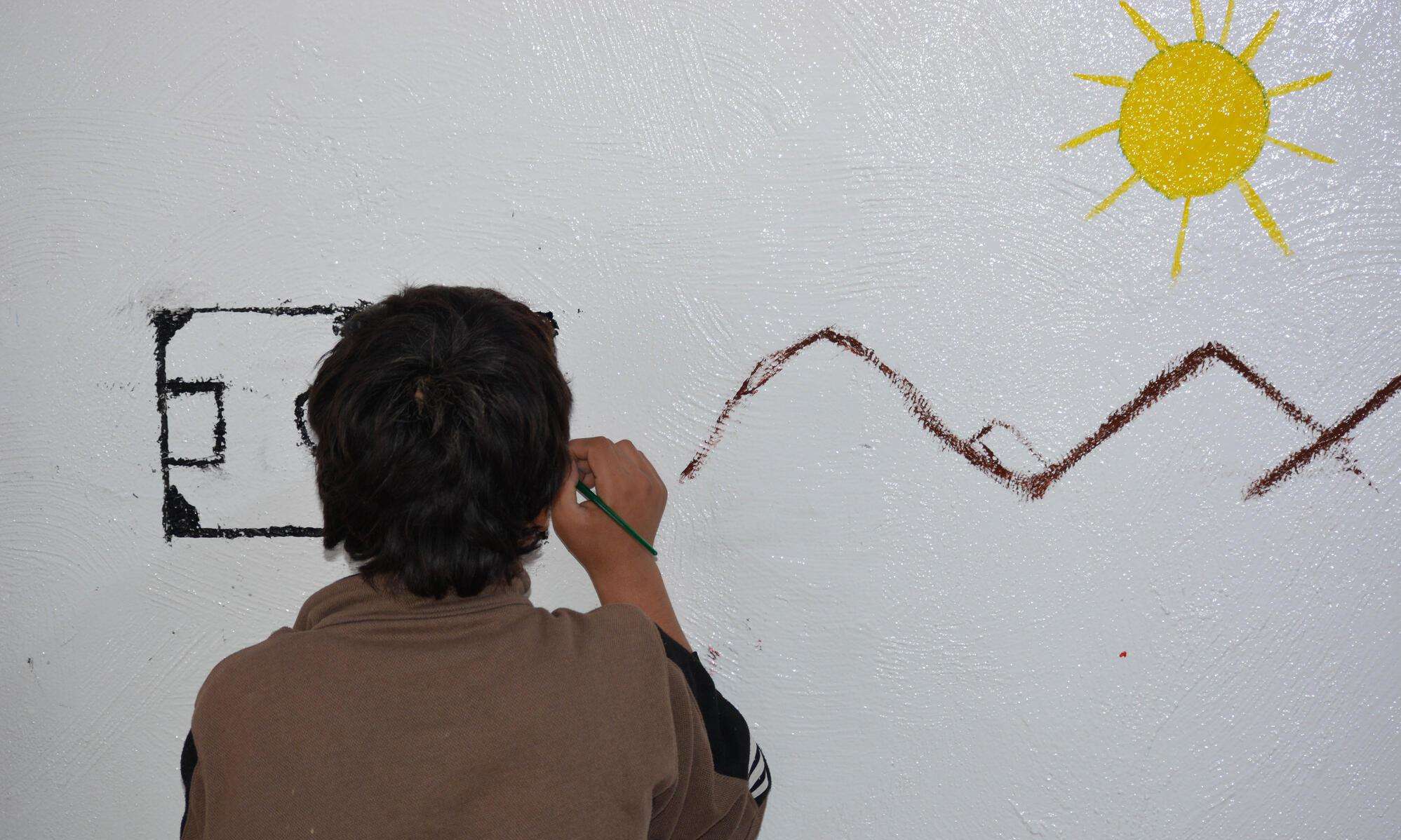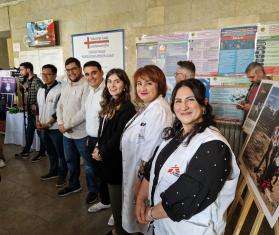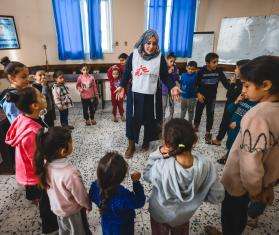Relentless rain drenched the sea of tents housing more than 40,000 people living in Al-Hol refugee camp, northeastern Syria. The weather mirrored the mood in the camp—essentially an open-air detention center whose inhabitants each carry their own story of displacement, hardship, and survival.
People detained at Al-Hol camp grapple with numerous challenges, including limited access to water, inadequate sanitation facilities, and a health care system inhibited by restrictive security practices. Living conditions and basic services desperately need to be improved—people live in makeshift tents, battered by rain during winter and scorched by the sun during summer.
Residents of the camp have described themselves as being trapped “between two fires”: on the one side, the persistent threat of extreme violence committed by armed groups in the camp, and on the other, the increasingly harsh security measures implemented by camp authorities in an attempt to manage the situation in Al-Hol.
The camp lies on the southern outskirts of Al-Hol, a town close to northeastern Syria’s border with Iraq. In 2018, following the battle of Deir ez-Zor between Syrian Democratic Forces and the Islamic State in Syria (ISIS), the camp effectively became an outdoor detention center holding people who were displaced during the fighting. As of October 2023, 93 percent of people detained in Al-Hol camp are women and children—65 percent are children, 51 percent are younger than 12 years old.
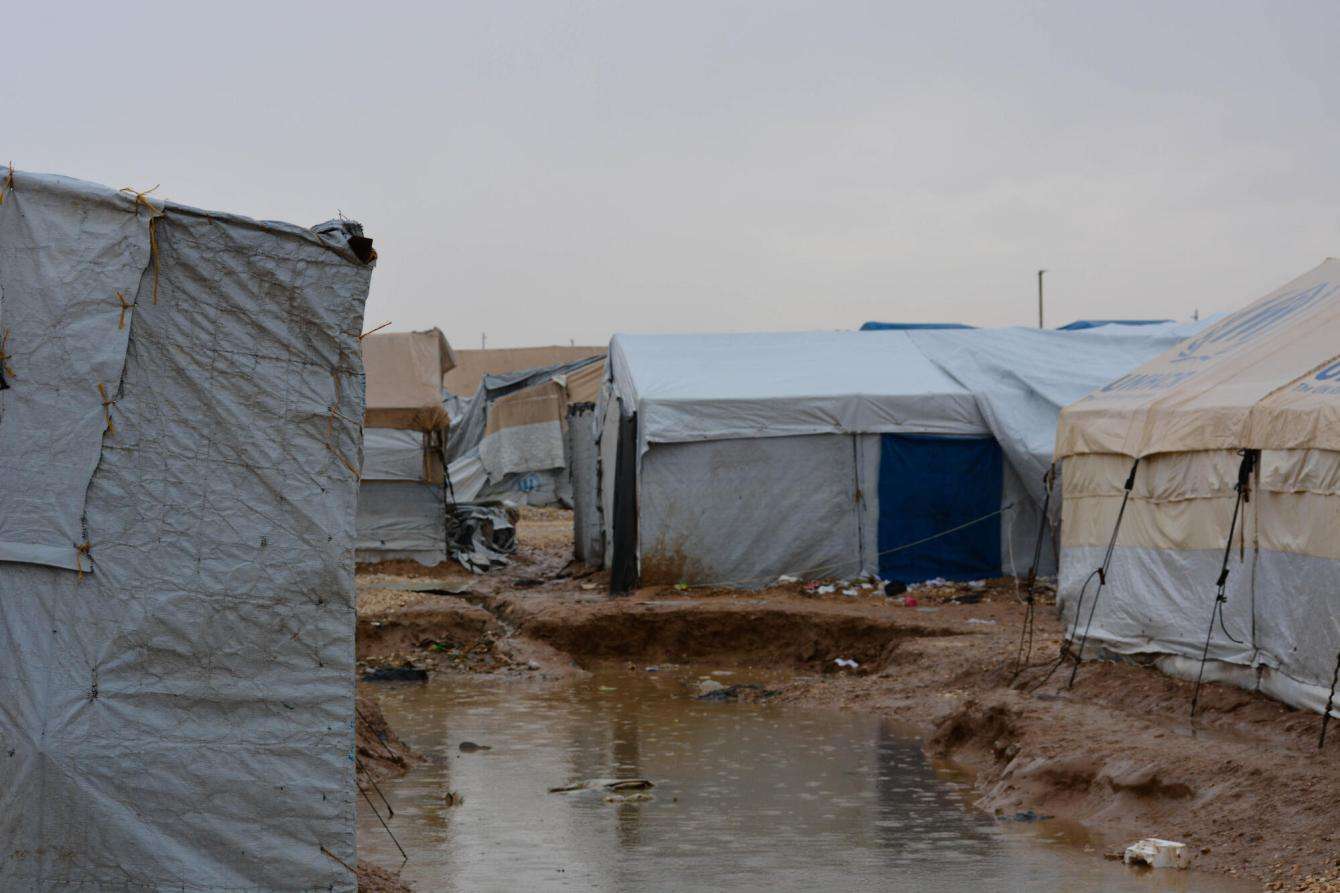
For those who have experienced traumatic events such as violence and displacement, the camp has only exacerbated their anguish. The symptoms of post-traumatic stress disorder, depression, and anxiety are rife, casting a shadow over the mental well-being of its residents.
Challenges accessing care
“During displacement, the family was [separated] due to shelling—my 11-year-old son with his uncles in the village, and me with my five daughters in Hajin town,” said Um Othman, 42, who is from Deir ez-Zor. “For six months, I did not know anything about my son and my siblings. We were so poor and helpless. We had to eat grass to survive. No one came to help us or advocate for us.” Um Othman’s husband was killed in 2014 by IS. She and her six children spent a year moving from place to place before arriving at Al-Hol.
She has only left the camp once since she arrived.. “The first time I left the camp was after three years when my six-year-old daughter was burned while playing with another kid. I was referred to Hassakeh [hospital], but it was a stressful experience especially as there was an armed man escorting us in the ambulance. After 19 days in Hassakeh hospital, [my daughter] succumbed to her injuries and passed away.” Um Othman’s voice quivered with pain and tears streamed down her face as she recounted this story. The emotional weight of this memory was apparent.

Between two fires: Danger and desperation in Syria’s Al-Hol camp
Read the reportThe toll of displacement
Abu Omar, a 43-year-old refugee from Iraq’s Anbar province, was displaced with his parents, his wife, and their five children in 2015 due to the intense shelling between Iraqi forces and ISIS. He remembers it as though it was yesterday.
“The bombardment was non-stop, day and night. We saw people getting killed before our eyes. My kids would come to me seeking safety, but I was helpless as well. We ate leaves and grass at some point out of hunger on our three day trip to Syria,” he said.
Since becoming displaced, Abu Omar has suffered from sleep disturbances and anxiety. “The circumstances around our displacement were harsh and it negatively affected my mental health. Can you imagine? We left our houses and everything behind. When a person changes his place of sleeping, he cannot sleep—we changed a whole country!" As Abu Omar recounted his harrowing journey, his hands moved to his head, as if attempting to shield himself from the weight of the horrifying memories.
Abu Omar makes a small living for his family by selling food from a cart. Most days he roams through the camp selling items, sometimes only making around 10,000 Syrian Pounds (about US$0.70) per day. “All goods are getting expensive, but as you see it is raining today—[so] I can’t work.”
Movement in and out of the camp is heavily restricted, people have been stripped of their rights. As outlined in MSF’s 2022 report on the horrific conditions in the camp, both internal and external referrals for health care require prior approval from the security forces and the camp administration, meaning urgent medical care is often delayed.
“My mom had renal disease and needed dialysis every week,” said Abu Omar. “One day the dialysis session was delayed, and she was really in pain. I begged a local health organization to refer her to Hassakeh [hospital] as soon as possible but they said the doctor delayed her case for tomorrow. I returned to the tent, but she died in my arms.”
Abu Omar says he felt hopeless, but MSF’s mental health sessions have helped him. “I can’t cope with life in here, I really miss my country and relatives. I want to be back as soon as possible. I come here to MSF’s mental health clinic to get rid of the negativity in our lives. It is nice to have someone who can listen to you and give you his time and attention.”
In MSF’s pursuit to address the mental health crisis at Al-Hol, it is imperative to destigmatize mental health and psychosocial care. Encouraging open conversations about mental health is a crucial step in fostering a supportive community where seeking help is seen as a sign of strength, not weakness.
“I felt grateful when I arrived at the camp, but then I realized the grim reality,” said 35-year-old Um Khaled from Deir ez-Zor. “We suffer once winter approaches. The rain floods our tents and winds destroy them, [and then there are] cold diseases. My three kids don’t get a proper education. Living in these circumstances affected my mental health. I can’t sleep at night. I am always overthinking and silent. I lost the ability to express myself.
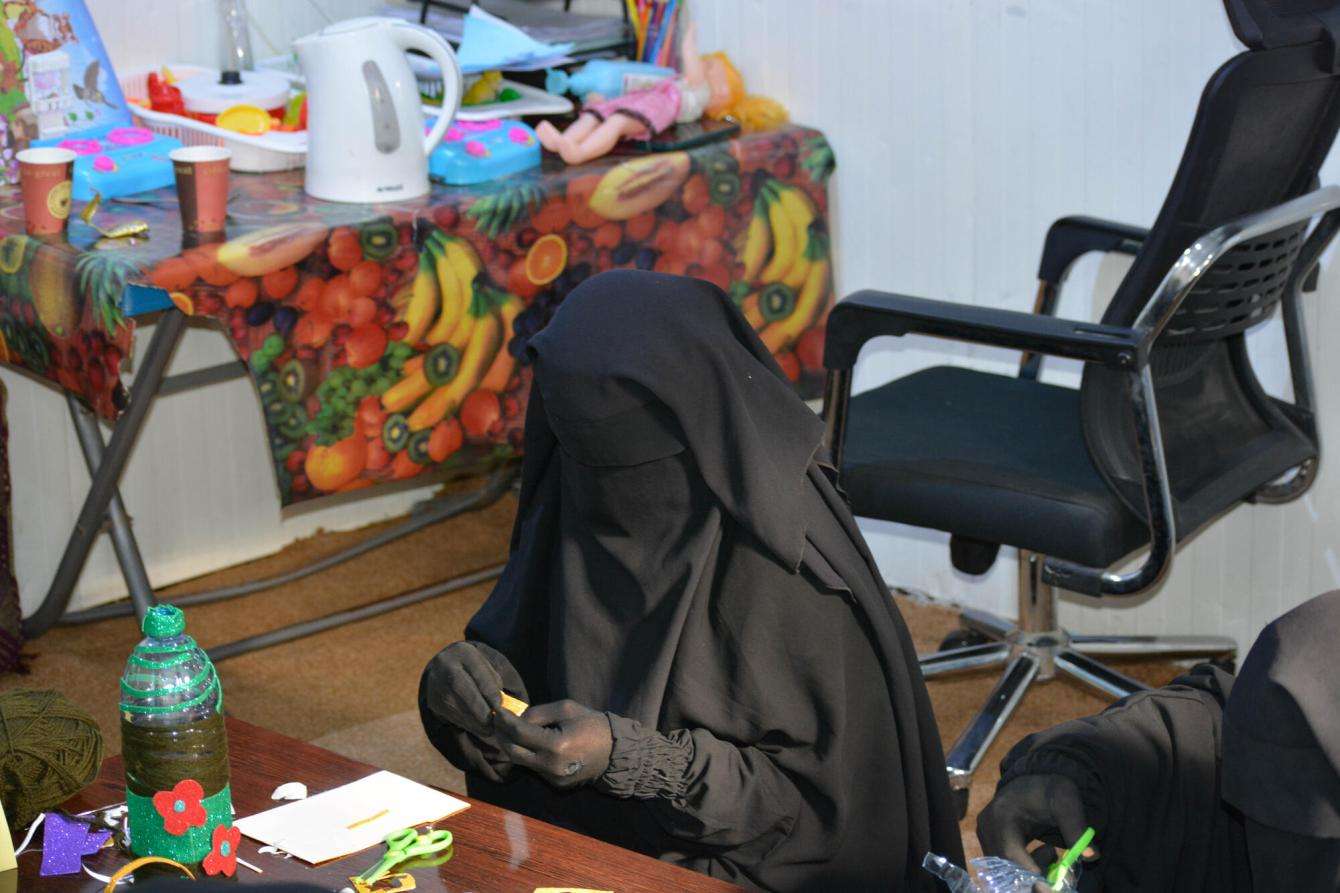
Reducing the stigma of mental health care
To MSF’s staff working at the camp, the needs are clear. “As you see, the mental health waiting area is crowded today,” said Sama, MSF’s mental health activities manager at Al-Hol camp. “On average, we have 25 patients coming for individual counseling sessions every day, and around 40 patients for other mental health [services].”
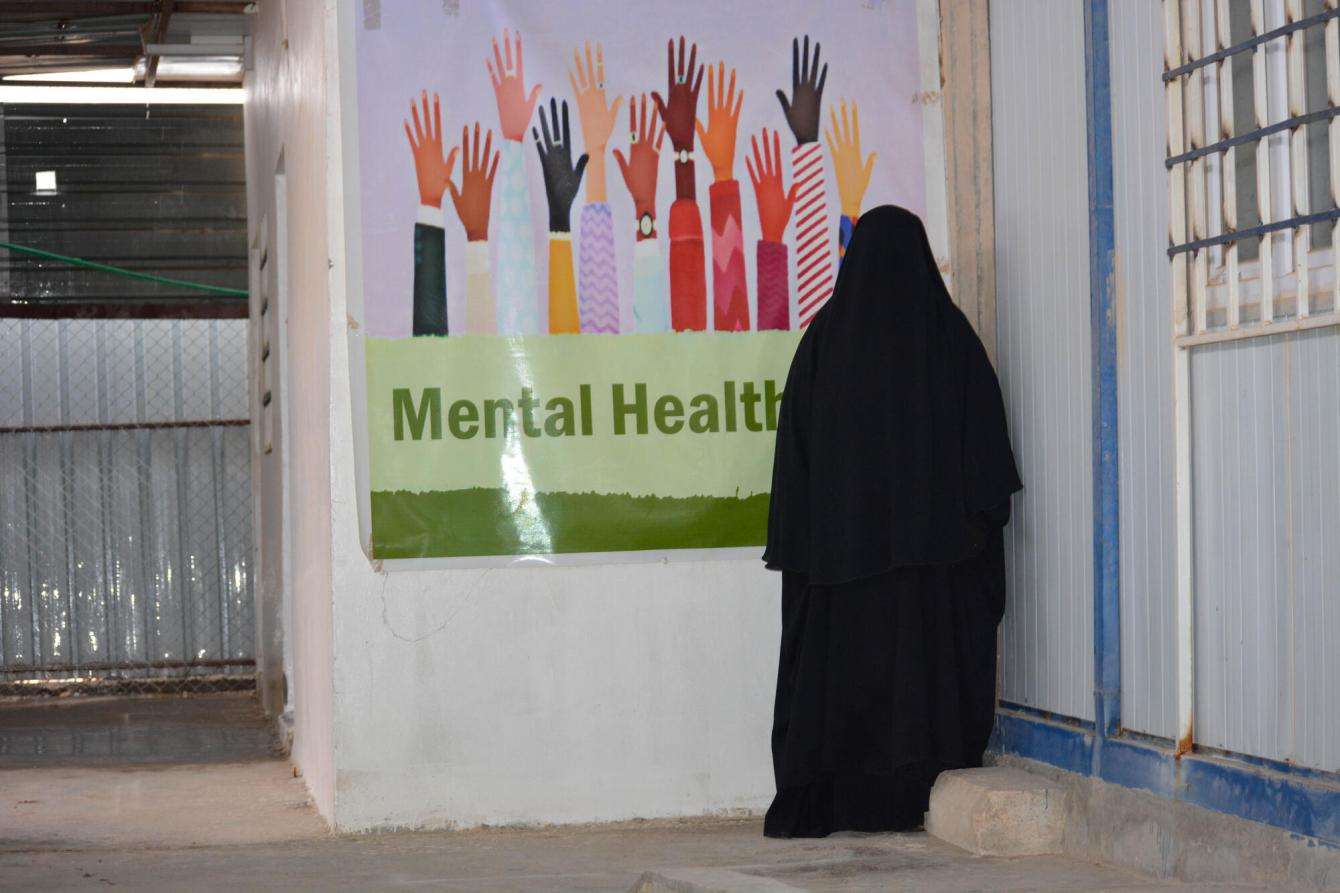
“In our society, when someone is depressed they say that his spirit is possessed and that he needs [an] exorcism, but I decided to go the scientific way and visited MSF’s clinic. I was embarrassed to tell my neighbors and friends that I am seeking mental health sessions out of fear that they would consider me ‘crazy’. I really benefit from these sessions because I now know life isn’t only about taking care of others, it is taking care of yourself too.”
No end in sight
Children are innocent victims of circumstances beyond their control but also face physical hardships and mental distress. Mental health activities are a crucial part of any medical response for adults and children alike.
“They can provide a safe and supportive environment for people to express their feelings, process their experiences, and learn healthy coping mechanisms,” said Sama. “They include individual counseling for mild to severe mental health conditions, identifying and referring psychiatric cases for further care, psychosocial group sessions including psychoeducation (i.e. educating people about mental health conditions and treatment available), living well groups, and recreational activities. “Our patients now advocate for mental health services.” In 2023, 70 percent of new patients were referred by relatives, friends, or community.
When MSF teams speak to people in Al-Hol, it is clear that the challenges faced by its residents extend far beyond the physical constraints of the camp. “Here in the camp, in 2020, my sister-in-law, along with her two daughters and one son all died in an arson accident,” said Um Ibrahim, who is receiving mental health care from MSF. “The Iraqi government will repatriate me next week,” she said. “I have mixed feelings. I am happy and unhappy at the same time. I will leave some relatives and siblings behind, including my sister. That’s made my happiness incomplete.”
About MSF's work in Al-Hol camp
Since September 2021, MSF has provided mental health and psychosocial support services inside Al-Hol camp. In 2023, MSF supported more than 10,000 people at Al-Hol camp with psychosocial group activities for kids, teens, and adults, and provided 2,000 individual therapeutic counseling sessions.
In 2022, MSF released the report “Between Two Fires: Danger and Desperation in Syria's Al Hol Camp.” The report highlighted MSF’s concerns that insufficient progress is being made to close the camp, with no long-term alternatives to end the arbitrary and indefinite detainment of people living there. The findings of the report remain relevant more than one year later.
